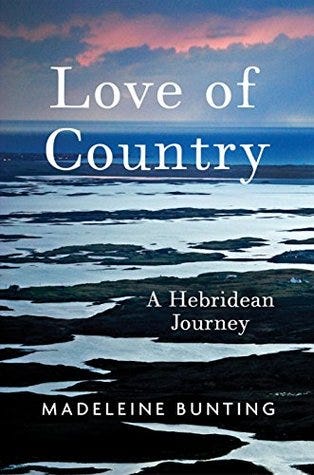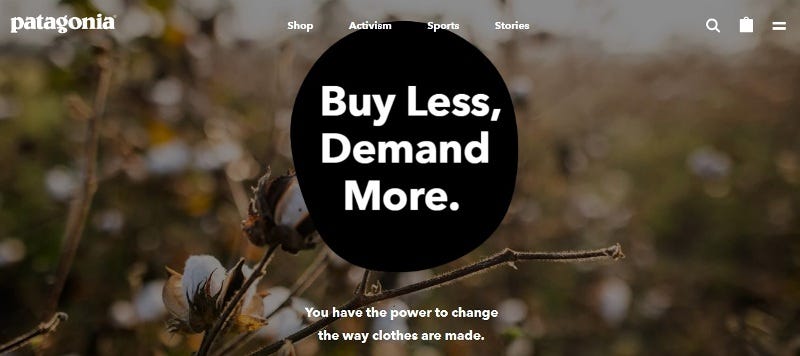“We think place is about space but in fact its about time” Rebecca Solnit: The Faraway Nearby
Welcome to Regen/ Notes
Regen Notes is the newsletter of regenerative news, stories and more, with a sideways focus on the built environment. It is a companion to our Regen/ Zoom activities where we connect the spaces between regenerative dots, share ideas, themes and individuals that invigorate and inspire.

Place in the vast scope of time
Within the built environment we to often consider ‘place’ as the snap shot of the present, rarely considering all that has occurred in the past, in deep time, those geological, ecological and cultural events that shape the place we see today. Or indeed to consider how our short term plans have long term consequences in “the vast scope of time”


There is a wonderful and necessary debate as to whether ‘people belong to places rather than places belong to people’, one that goes to the heart of capitalism on one hand and of regenerative thinking on the other.
The dystopian endpoint is that everywhere becomes a kind of anywhere, all distinctive characteristics erased.
Reading Love of Country by Madeleine Bunting brought the concept of country alive here in the British Isles, something I had considered a concept restricted to Australia and New Zealand and searching for the local meaning of country. In the case of Love of Country, the Hebrides and how the Gaelic language being vertical in deep time (consider the many definitions of mountain colours in Gaelic place names) where memories, stories, cultures and knowledge are kept alive in the language. In comparison, “to a modern European language was ‘horizontal, possessing breath and extent’, but without a depth in time, so even the names of one’s grandparents could be forgotten”
the word ‘country’ to describe their profound connection to place. Country embodies the spirit ancestors who made the land, sea and all living creatures as well as the knowledge, stories and responsibilities tied to those places. INDIGENOUS AUSTRALIA, BRITISH MUSEUM EXHIBITION, 2015
Love of Country is an exciting, insightful and challenging journey through place, culture and landscape. I have included more extracts and thoughts from a Love of County for Regen/Notes paid subscribers here.
‘Another reality prevails in Harris: language, religion, culture – the whole of everyday life – are embedded in tradition, not in consumption
One Place at a time - starting in our back gardens
Gardens are becoming shop windows for the wider environment, demonstrating the dangers of pests and threats of climate change and showing what can be done to tackle it,” says Simon Toomer, curator of living collections at Kew Gardens in the UK. How to turn your garden into a carbon sink
Rachel Carson
It is fifty years since the first instalment of Silent Spring made its debut in The New Yorker. Those instalments went on to become the book that started the environmental movement in the 1970’s yet sadly remains too relevant and current.
The substances and pesticides that Rachel Carson talked about are today known as forever chemicals, in an odd recognition of their consequences though future time, yet with our continued use of them in everyday products. And in the case of construction through COSHH (Control of Substances Hazardous to Health) as though we can can control their impact ‘for ever’.
And sad that its is still necessary, 50 years after Silent Spring that the ILFI has added over ten thousand PFAS to its Redlist (and Prioirity List) —forever chemicals with well documented negative health impacts. PFAS are a group of compounds that do not break down in the environment and can cause potentially serious health issues for humans, non humans and the environment.
Forever and Everywhere
(August update) as reported on the BBC and elsewhere, new research shows that rainwater in most locations on Earth contains levels of PFAS chemicals that "greatly exceed" safety levels. The research unit at Stockholm University say it is "vitally important" that the use of these substances is rapidly restricted.
50 years down the stream of time from Rachel Carson have we really learnt?
Carson Inspiration
The always inspiring posts from (@BrainPickings) covered a talk Carson, then terminally ill, gave to students at Scripps College in California 50 years ago.
Today our whole earth has become only another shore from which we look out across the dark ocean of space, uncertain what we shall find when we sail out among the stars.
The stream of time moves forward and mankind moves with it. Your generation must come to terms with the environment. You must face realities instead of taking refuge in ignorance and evasion of truth. Yours is a grave and sobering responsibility, but it is also a shining opportunity. You go out into a world where mankind is challenged, as it has never been challenged before, to prove its maturity and its mastery — not of nature, but of itself.
Therein lies our hope and our destiny.
What wonderful words to share today with the next generation
Zoom Regenerative 47
As Anna and Martin posted on linkedin ...
What a fabulous #zoomeregen evening with mafi - walk on art. We enjoyed a virtual factory tour which reset my high waterline for what great operations, production and process look like when a company centres regenerative culture at its core.
The difference between technical efficiency and regenerative practice and process.
The Call to Action for designers and specifiers wishing to shape the industry: specify thinner floorboards. The environmental improvements that come from specifying a 16mm board vs a 19mm are significant and impactful. A small action that could resonate loudly.
Walter Lourie, Georg H Klampfer, Criswell Davis and Tracy Fielding great to hear you discussing the issues around that.
Thanks go to everyone who could make it last night, and to regulars Sophie Lacey, Ann Vanner, Rachel Fowler John Ennis Patrick Folkes, Rachel Sheila Kan, Diana Ilina - you were missed.
We saw a truly wonderful example of ‘sufficiency’, of asking more and using less, of “only taking what we need and using everything we take” (in the indigenous Robin Wall Kimmerer #regenerative spirit) … and an informative conversation on all things Ash (what Annamarie called “Tree top trumps”)
My thanks to Walter and Georg and the awesome #zoomregenerative community, and do take time to read the comments on this linkedin post
ZR48
At #zoomregenerative, we’re now on our mid-year break, with the next gathering in September. Let us know who you would like to see talk as part of our approach in celebrating the individual regenerator.
Sufficiency
Doing more with less, and within the regenerative context “Demand More, Use Less” - asking more questions about what we are using, where it comes from, its impact on place and people, its impact in use, and potential for future reuse” and knowing all that to simply ask less. Buy Less, Demand More
Regenerative Social Housing
The Echelon Sustainability programme kicked off in earnest on the 17th June, exploring the six ‘regenerative principles’ from The Regenerative Playbook. Participants were invited to define what regenerative means to them, to explore relationships with nature and consider what toxic (Redlist) materials we are placing into our homes.






